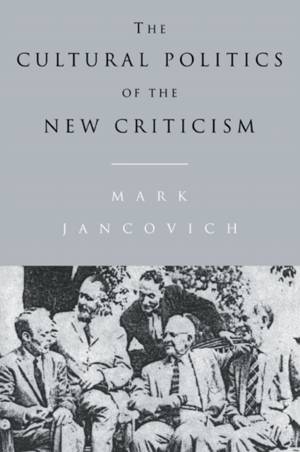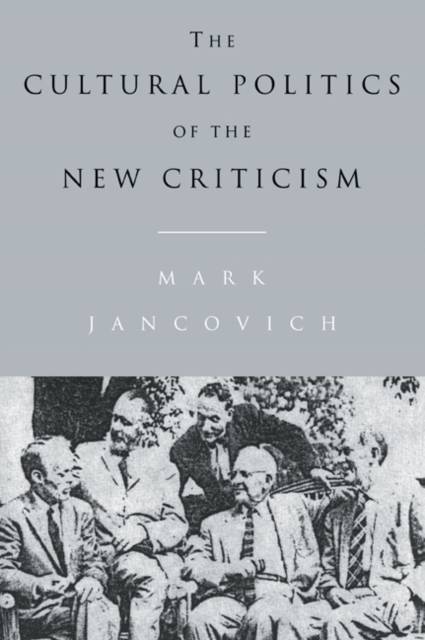
- Afhalen na 1 uur in een winkel met voorraad
- Gratis thuislevering in België vanaf € 30
- Ruim aanbod met 7 miljoen producten
- Afhalen na 1 uur in een winkel met voorraad
- Gratis thuislevering in België vanaf € 30
- Ruim aanbod met 7 miljoen producten
Zoeken
€ 74,95
+ 149 punten
Uitvoering
Omschrijving
In this book, Mark Jancovich concentrates on the works of three leading American writers - Robert Penn Warren, John Crowe Ransom and Allen Tate - in order to examine the development of the New Criticism during the late 1920s and early 1930s, and its establishment within the academy in the late 1930s and 1940s. This critical movement managed to transform the teaching and study of English through a series of essays published in journals such as the Southern Review and the Kenyon Review. Jancovich argues that the New Criticism was not an example of bourgeois individualism, as previously held, but that it sprang from a critique of modern capitalist society developed by pre-capitalist classes within the American South. In the process, he clarifies the distinctions between the aims of these three Southern poets from those of the next 'generation' of New Critics such as Cleanth Brooks, Warren and Welleck, and Wimsatt and Beardsley. He also claims that the failure on the part of most contemporary critics to identify the movement's ideological origins and aims has usually meant that these critics continue to operate within the very professional terms of reference established through the New Critical transformations of the academy.
Specificaties
Betrokkenen
- Auteur(s):
- Uitgeverij:
Inhoud
- Aantal bladzijden:
- 232
- Taal:
- Engels
Eigenschappen
- Productcode (EAN):
- 9780521034845
- Verschijningsdatum:
- 14/12/2006
- Uitvoering:
- Paperback
- Formaat:
- Trade paperback (VS)
- Afmetingen:
- 152 mm x 229 mm
- Gewicht:
- 344 g

Alleen bij Standaard Boekhandel
+ 149 punten op je klantenkaart van Standaard Boekhandel
Beoordelingen
We publiceren alleen reviews die voldoen aan de voorwaarden voor reviews. Bekijk onze voorwaarden voor reviews.











